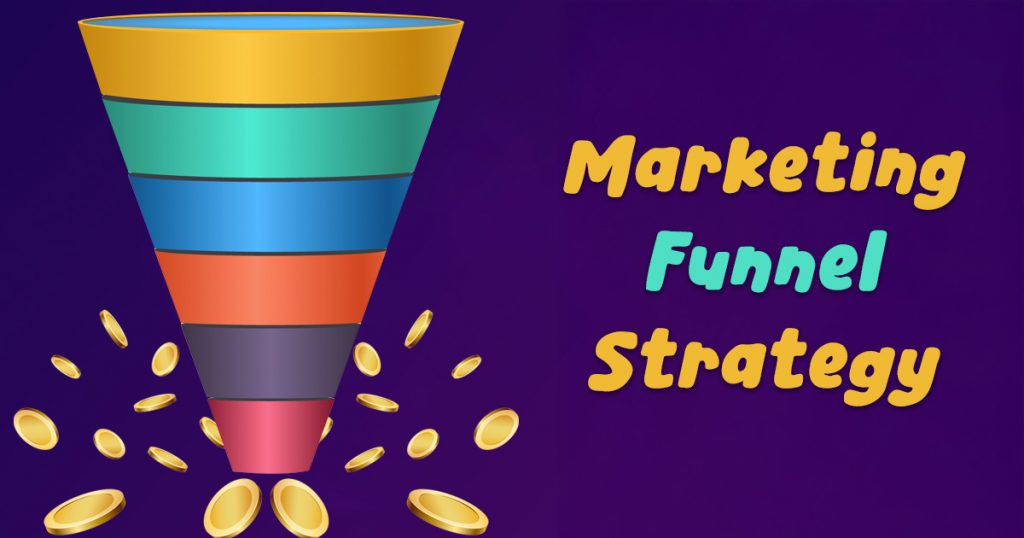If you ever asked yourself if your business needs a marketing funnel? The answer is yes, especially if you want to grow consistently. Most people won’t buy from you the first time they hear about your business. They go through stages of discovery, evaluation, and decision-making. A well-structured marketing funnel strategy helps you guide them through each step thoughtfully and consistently.
1. It Simplifies the Customer Journey
Without a funnel, your marketing might feel random. A funnel helps you organize how people interact with your brand.
Instead of guessing what comes next, each step has a purpose. You know what message to send and when to send it.
This kind of structure makes the experience better for your audience and more efficient for your team.
2. It Improves Lead Nurturing
Many people discover your brand, get curious, and then forget about you.
With a good marketing funnel strategy, you can nurture leads over time using content, emails, or special offers.
You move prospects from being vaguely interested to being ready to buy, without pushing too hard too soon.
3. It Boosts Conversions
A strong funnel turns interest into action. It gives people the right reasons to buy at the right moment.
At the bottom of the funnel, strategies like personalized emails or limited-time discounts can help close the sale.
You don’t just get more buyers. You get buyers who feel confident about their choice.
4. It Increases Customer Retention
The funnel doesn’t stop after a sale. Businesses that focus on customer loyalty see more repeat purchases and referrals.
Follow-up emails, loyalty rewards, or helpful tips keep people engaged. This kind of after-sales support turns one-time buyers into long-term customers.
5. It Prevents Lost Opportunities
In a busy business, it’s easy to lose track of leads that aren’t ready to buy. These are the ones that often slip away.
Tracking your funnel helps you avoid this. You can spot where people drop off and fix what’s not working.
Think of it as sealing leaks in your system before too many leads get lost.
6. It Helps You Create Targeted Campaigns
When you know where someone is in the funnel, you can match your message to their needs.
People at the top want helpful info. The people in the middle want proof. People at the bottom want a reason to act now.
Funnel marketing gives you a clear way to personalize campaigns without wasting time or money.
7. It Organizes Your Marketing Strategy
Without structure, it’s easy to throw money at random tactics and hope for the best. A funnel keeps you focused.
You’ll know if your efforts are driving traffic, building trust, or converting leads. You can prioritize what works and cut what doesn’t.
This helps you plan smarter and use your resources wisely.
8. It Gives Better Sales Insights
A good online marketing funnel shows where your best leads come from and what makes them convert.
You can track things like:
- Conversion rates by stage
- Time spent at each stage
- What offers work best
These insights help you improve both your marketing and your sales process.
9. It Prepares You for Long-Term Growth
A funnel isn’t a one-time setup. It grows with your business.
You can create different funnels for different audiences or products. You can test new offers, try new formats, and see what works.
Once it’s running, your funnel acts like a system that brings in new leads while you focus on other parts of your business.
The Downsides of Using a Marketing Funnel
Marketing funnels can be helpful, but they also come with a few drawbacks. Here are some common downsides to keep in mind.
1. Real Customer Journeys Aren’t Always Linear
Funnels follow a step-by-step process, but buyers don’t. People may skip steps, repeat them, or take longer to decide.
2. Funnels Can Limit Flexibility
Focusing too much on the funnel can make it hard to adjust when customer behavior or market trends change.
3. Poor Funnel Design Hurts User Experience
If the funnel feels too pushy or repetitive, it can turn people off. Not everyone likes scripted email sequences or constant offers.
4. Metrics Don’t Show the Whole Picture
Funnels rely on tracking, but not all actions are easy to measure. You might miss important steps that happen off your site or over time.
5. One Funnel Doesn’t Fit Everyone
Different products and audiences may need different journeys. A single funnel may not serve all of your leads well.
While marketing funnels can help, they work best when you stay flexible and focused on the customer, not just the process.
Build the Experience, Not Just the Funnel
A marketing funnel is your customer’s experience with your brand, from start to finish. When done right, it becomes less about pushing for sales and more about guiding people through a journey that feels natural, helpful, and human.
Because every touchpoint, from the first ad to the final thank-you message, shapes how your audience sees you. So go beyond the funnel. Use it to build trust, deliver value, and create moments that keep people coming back.
